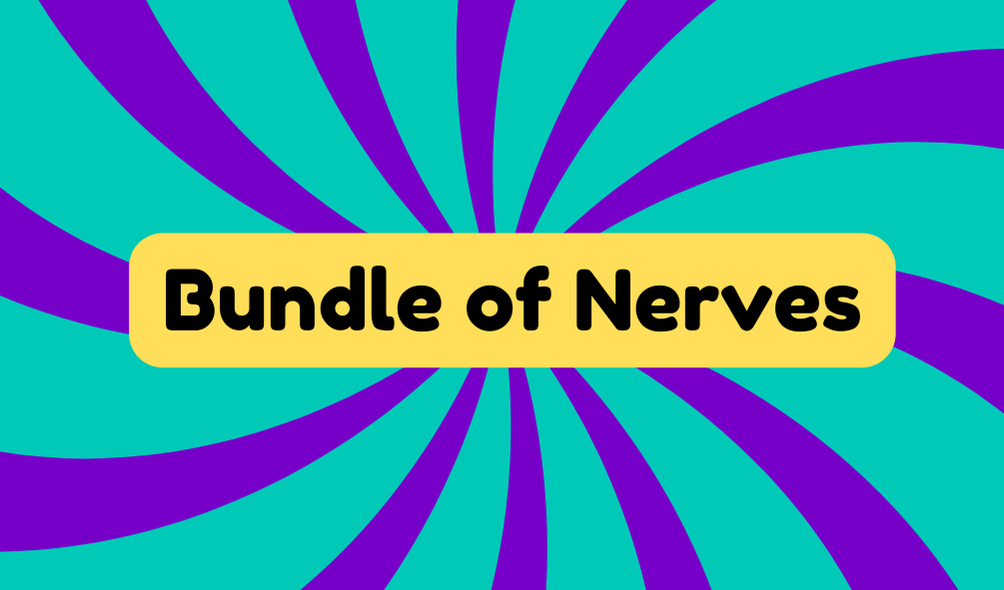"Bundle of nerves" refers to feelings of anxiety and unease you're likely to experience during high-pressure situations, like public speaking or job interviews. The term traces back to the Latin word "nervus," highlighting both the physical and mental aspects of anxiety. You might use it in a sentence like, "I felt like a bundle of nerves before my big exam." This phrase remains relevant today, as many people face daily pressures relating to work and social expectations. Understanding its meaning and implications can help recognize and manage anxiety better, which is something worth exploring further.
Synonyms
When you think of the phrase "bundle of nerves," several synonyms come to mind that capture the same sense of anxiety and unease. Terms like "edgy" and "jittery" effectively convey those anxious feelings. You might not realize how closely these words reflect a nervous disposition, yet they do in distinct ways. Consider the following examples:
- Fidgety – This describes someone who's unable to sit still, often due to anxiety.
- Tense – This captures the tightness and strain that comes with worry.
- Restless – It emphasizes a state of being uneasily in flux, unable to settle.
Recognizing these synonyms is important; they provide more nuanced ways to express what it feels like to be in a state of heightened alertness.
Example of Sentences
Being a bundle of nerves is a common experience, especially during high-pressure moments. You might find yourself feeling jittery or fidgety, struggling with anxiety management. Here are three examples to illustrate this:
- Before a big presentation, you may pace nervously, your mind racing as your nervous system reacts to the stress.
- A job interview could leave you a bundle of nerves, worried about the questions you'll face and how you'll respond.
- Even seasoned performers often feel like a bundle of nerves just before stepping on stage, battling anxiety that challenges their confidence.
Recognizing these feelings is key to managing your reactions effectively; embracing the nervousness can lead to innovative coping strategies, transforming that anxious energy into performance power.
Origin
The idiom "bundle of nerves" traces its roots to the intricate structure of the nervous system, where bundled fibers of neurons transmit electrical impulses. This neuroscience connection reflects how anxiety often feels like an overwhelming torrent of energy coursing through your body. The term "nerve" originates from the Medieval Latin "nervus," symbolizing more than just the biological; its cultural interpretation highlights our complex relationship with anxiety. Historically, expressing nervousness or anxiety has evolved, linking intense emotions to life's significant moments. You might wonder if this phrase accurately captures your experience. While it underscores the physiological basis of anxiety, it also urges us to reflect on broader implications in understanding mental health. So, next time you feel anxious, remember this deeper context.
Collocations
Collocations involving the phrase "bundle of nerves" often highlight its common usage in expressing anxiety and tension. You might find it tied to various scenarios where stress is prevalent. Consider these familiar contexts:
- Preparing for a big presentation can turn anyone into a bundle of nerves, especially when anxiety triggers hit.
- Before major events, like a wedding or an exam, it's easy to feel like a bundle of nerves, risking nervous breakdowns.
- In high-pressure jobs, many report being a bundle of nerves during tight deadlines, which heightens their stress levels.
Recognizing these collocations helps you understand how this phrase embodies feelings of unease and the everyday experiences of anxiety. It's not just a phrase; it reflects real-life struggles many face.
How to Use in Everyday Language
Feeling anxious about a job interview? You're not alone. Many people experience this feeling, often described as being a "bundle of nerves." To effectively use this term, recognize how it relates to anxiety management and managing nervous habits. When you sense stress, acknowledge it and verbalize that you're feeling like a bundle of nerves.
| Situation | Example Usage |
|---|---|
| Public speaking | "I'm a bundle of nerves before speaking." |
| Starting a new job | "I'm just a bundle of nerves today!" |
| Taking an exam | "She's a bundle of nerves about the test." |
| Meeting new people | "I was a bundle of nerves at the party." |
Using this idiom can help demystify your anxiety, making it easier to connect with others experiencing similar feelings.
Why Is It Still Relevant Today?
Anxiety remains a common experience in today's fast-paced world, making the term "bundle of nerves" particularly relevant. With the growing focus on mental health, people often feel overwhelmed by societal pressure to succeed. This term captures that feeling perfectly, as it describes the constant tension and worry many face daily. As we endeavor for innovation in all areas of life, it is crucial to recognize that stress and anxiety can hinder our potential. If we ignore our mental health needs, we risk perpetuating a cycle of anxiety. Awareness of phrases like "bundle of nerves" can foster important conversations about emotional well-being, encouraging us to seek solutions and support rather than silently suffering through our challenges.







